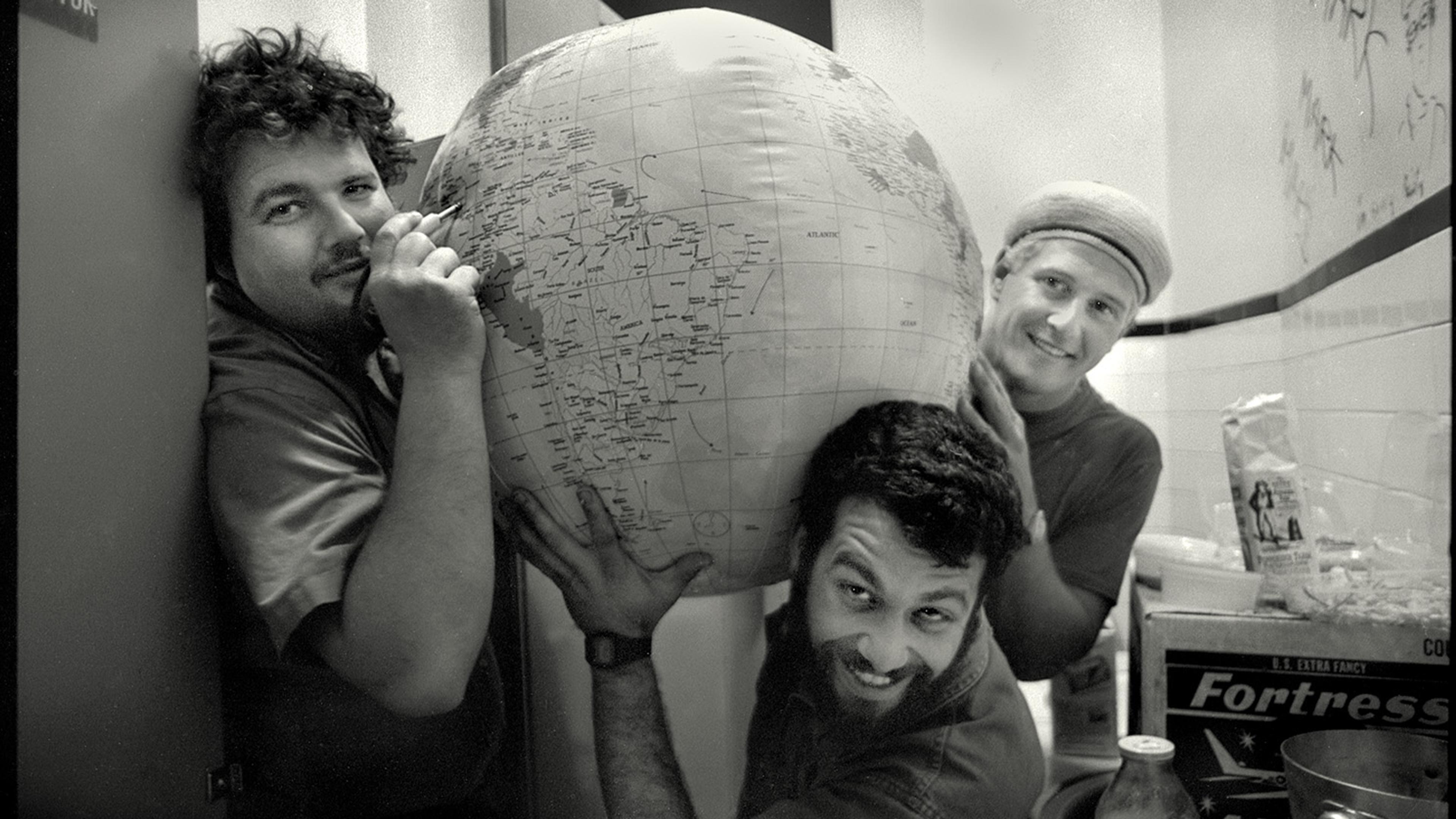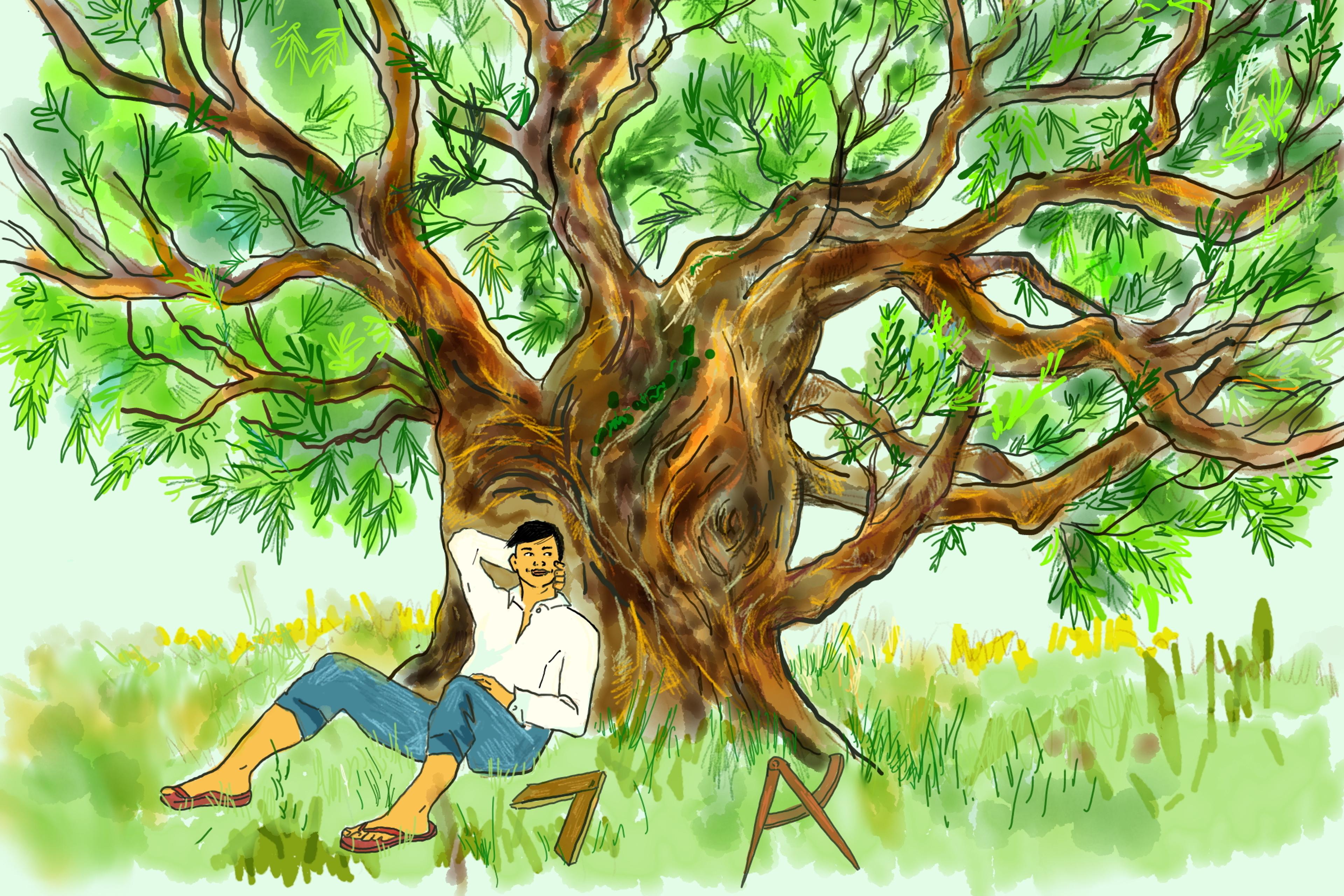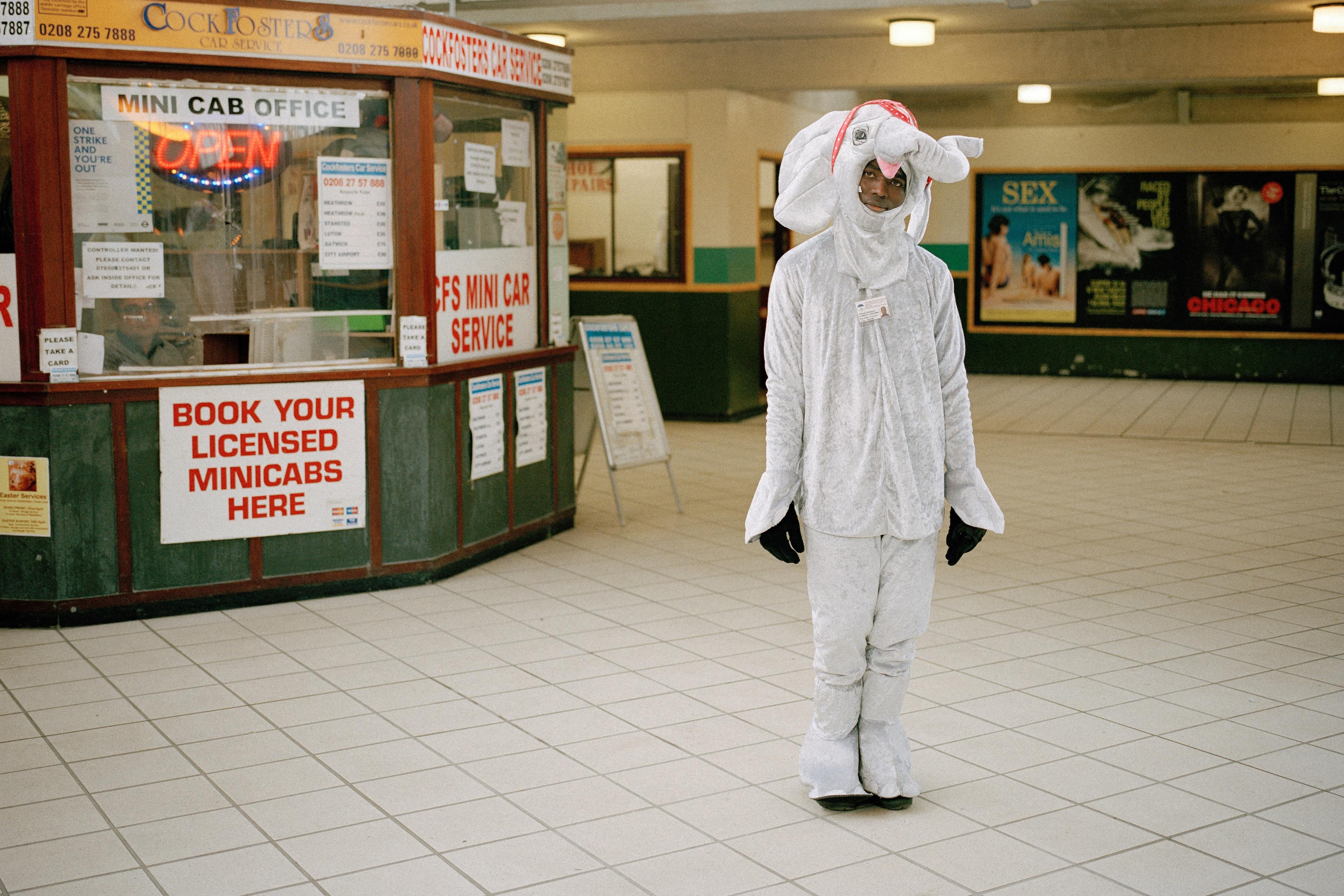John Alec Baker was not an ornithologist by profession. He had a regular English schoolboy’s grammar-school education, then won his bread at odd jobs and minor clerical positions in the Essex county town where he was born and raised (and where he would, at the age of 61, die). Despite having worked for some time at the Automobile Association, he never learned to drive a car, so when he travelled the quiet roads into the English countryside around Chelmsford to watch the birds, he walked or – despite his poor eyesight and increasingly debilitating rheumatoid arthritis – rode his bicycle.
In his free time, Baker watched and documented the habits of birds, with particular attention to one raptor that had, by the middle of the 20th century, become seriously endangered: the peregrine falcon. Afternoons in the woods, and evenings recording his observations in a diary – a decade of such labour bore Baker his small, luminous masterpiece The Peregrine (1967), now recognised as some of the greatest nature writing ever set to paper:
For 10 years, I spent all my winters searching for that restless brilliance, for the sudden passion and violence that peregrines flush from the sky. For 10 years I have been looking upward for that cloud-biting anchor shape, that crossbow flinging through the air.
Not money, nor fame, nor even the improvement in man’s estate that motivates the knowledge-gathering activity of the modern scientist: Baker’s effort was for the sake of something else entirely. He sought something splendid and beautiful, to be sure, but – in worldly terms – completely and utterly useless.
Scarcely a decade after the publication of The Peregrine and half the world away, two working-class California teenagers formed a band. Neither knew how to play any instruments – ‘they didn’t know bass guitars were different from regular ones,’ a historian reports; ‘they didn’t even know about tuning at all’ – but their moms thought it a better idea than aimlessly wandering the rough streets of San Pedro, so they thought they’d give it a try. A few months of rookie jamming generated clumsy Alice Cooper and Blue Öyster Cult covers, before an encounter with the Ramones and the Clash won them over to punk rock. They started writing songs and, a few drummers and band names later, they finally settled on calling themselves the Minutemen. Over the course of their brief but intense five-year existence, they would become one of the most beloved and inspiring punk bands in the United States.
Punk rock, of course, doesn’t seem much like birdwatching. It’s a theatre for status-seeking and pretence: you start a band to strike it big, to get signed, get paid, get laid. But the Minutemen were indifferent to the glamour and the preening. Punk itself seemed to them like a thing worth participating in, and the most obvious means of participation was making music. ‘Sometimes you have to act out your dreams,’ said the bassist and singer Mike Watt, ‘because circumstances can get you crammed down. And instead of getting angry and jealous of what they got, why not get artistic about it and create a little work site, a little fiefdom?’ The activity – meeting other bands, ‘jamming econo’ (touring on the cheap), cutting records, acting out one’s dreams – was its own goal, and building a DIY punk rock world was a happy consequence. The meagre profits just kept the fiefdom running.
Baker’s story is relayed in beautiful detail in the philosopher Zena Hitz’s book Lost in Thought: The Hidden Pleasures of an Intellectual Life (2020); the story of the Minutemen comes from Michael Azerrad’s book Our Band Could Be Your Life: Scenes from the American Indie Underground, 1981-1991 (2001). Both are indispensable documents, in very different ways, of how the pursuit of creative and intellectual activities for their own sake results in an abundance of unpredictable, often unexpected rewards. Great art and thought have always been motivated by something other than mere moneymaking, even if moneymaking happened somewhere along the way. But our culture of instrumentality has settled like a thick fog over the idea that some activities are worth pursuing simply because they share in the beautiful, the good, or the true. No amount of birdwatching will win a person the presidency or a Beverly Hills mansion; making music with friends will not cure cancer or establish a colony on Mars. But the real project of humanity – of understanding ourselves as human beings, making a good world to live in, and striving together toward mutual flourishing – depends paradoxically upon the continued pursuit of what Hitz calls ‘splendid uselessness’.
The culture of the 21st century – on an increasingly planetary scale – is oriented around the practical principles of utility, effectiveness and impact. The worth of anything – an idea, an activity, an artwork, a relationship with another person – is determined pragmatically: things are good to the extent that they are instrumental, with instrumentality usually defined as the capacity to produce money or things. Bright young people are shuffled into a narrow set of lucrative ‘changemaking’ career paths in business, consulting and law; so-called ‘relationship experts’ counsel status-based courtship, the acquisition of a ‘high-value’ mate; guides to ‘productivity’ – the cardinal virtue of the 21st-century US, now exported globally – top nonfiction bestseller lists. Ways of being together, including religious worship, are ‘social technologies’; knowledge of how to do something, even to quietly contemplate the strangeness of being, is a ‘life hack’. For today’s luminaries and wisdom-peddlers, it’s instrumentality all the way down.
A life of splendid uselessness provides abundance far beyond one’s immediate aims
However, what W E B Du Bois said of education in The Souls of Black Folk (1903) applies to the whole of human endeavour: the point is ‘not to earn meat, but to know the end and aim of that life which meat nourishes.’ The good human life demands meaning and purpose, which cannot be won in any stable sense from things – like wealth or pleasure – that can only ever be means. Mere living might be possible under the solitary law of instrumentality; living well, however, is not. ‘The freedom from small utilities and large ones,’ Hitz observes, ‘from colourless surroundings, from the human diminishment offered in given social roles – this freedom grounds a vast variety of human possibilities.’ The Homo faber hypothesis of the early modern anthropologists and the US pragmatists was always an insufficient account of the human being: chimpanzees and orangutans use tools and weapons; ants and termites build elaborate supercities. No ape or insect, however, has been observed writing poems, philosophising or singing the blues.
Of course, not all useless activity is actually good. Binge-watching television, being hooked on drugs, or spending one’s day doing nothing but eating are useless activities, to be sure. But truly splendid uselessness nourishes and elevates us spiritually, rather than simply providing a rush of mental or bodily pleasure. The output is always more than the input: the contemplation of nature, the joy of music-making, and even the study of mathematics can be rich and ennobling activities that, while also being pleasurable, reward the intellect and the soul. And the more we engage in these kinds of activities, the more we hone our sensibility and capacity for receptivity – and these qualities allow us to pay attention to, learn from and, ultimately, act in the world.
But this kind of useless activity is not solipsistic. While rewarding each of us internally, splendid uselessness enriches the world beyond us. Like the fertile soil of a well-kept garden, a life of splendid uselessness provides abundance far beyond one’s immediate aims. The pursuit of good and beautiful things for their own sake tends to overflow, to bring more goodness and beauty into being: one good poem can spark a dozen others, a great one a thousand. A good marriage, conducted in a spirit of loving generosity and selflessness instead of status-acquisition, provides a model and inspiration to one’s friends, family and community. Baker’s book has encouraged countless bird enthusiasts, nature-observers and prose writers; the Minutemen are considered among the greatest punk rock bands in history. The phenomenon also appears in the sciences: ‘Throughout the whole history of science,’ wrote Abraham Flexner in 1939, ‘most of the really great discoveries which had ultimately proved to be beneficial to mankind had been made by men and women who were driven not by the desire to be useful but merely the desire to satisfy their curiosity.’ Performing an activity entirely for its own sake, and performing it excellently, results in an impact far beyond what was – or could have possibly been – intended.
Of course, instrumentality is not to be scorned as such: all goal-oriented activity, even the loftiest, demands a careful consideration of the best use of means for arriving at said goals. But Aristotle told us long ago that the highest good at which our various means aim is a good human life, and that such a life could never be reduced to the pursuit of the means of such a life – money, pleasure and so forth. Our living, to be sure, depends upon an adequate measure of these kinds of things, and of the material goods necessary for maintaining biological life: the schoolchild’s triad of food, clothing and shelter. But to live well, in the last analysis, we need uselessness.








